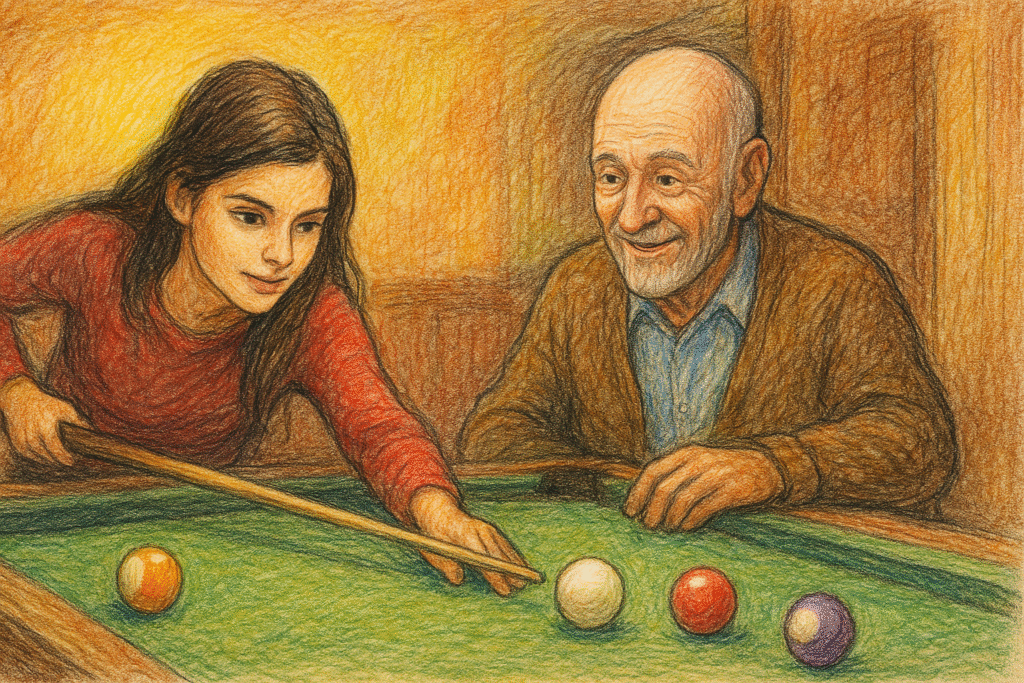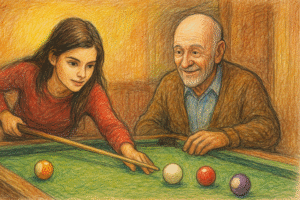In the Argentinian movie “El Cuento de la Comadreja” (The Weasel’s Tale), there’s a scene where the young Barbara (played by the Spanish actress Clara Lago) is invited to play pool by the elderly Martin (played by the Argentinian comedian Marcos Mundstock). Pretending not to know how to play, she asks, “Will you teach me?” Martin then invites her to start the game, and it quickly becomes clear that she’s actually a skilled player, sinking two striped balls on her first shot. She says, “I tricked you,” and after a pause, adds, “I love cheating people.” However, the one who ends up being deceived is her, because Martin—without her realizing it— made her lose by showing her the easy shots, allowing her to pocket all the simple balls while leaving the difficult one for last.
When only the tough shot remains, she fails to sink the ball and loses her turn. As Martin takes his turn, he says to her, “Do you know what your problem is?” After a pause, he continues, “You like easy shots, and nothing good is easy.” Because she should have taken the difficult shot earlier, when the cue ball was better positioned. But by always choosing the easy way, she was left with the hardest shot at the worst possible moment—and that’s why she lost. Because nothing good is easy.
Beyond the pool game, this is great advice for life. In life, if we always seek the easy path, we will end up losing, because living well requires facing challenges. A lasting marriage, a university degree, a stable career—none of these are easy. If we only go after what is effortless, we will move from one failure to another: divorce, dropping out of university, losing jobs, etc.
The problem lies in indulging or exaggerating our natural tendency to seek pleasure and avoid suffering. Those who only want enjoyment and refuse to endure hardship, those who always choose the easy path and dodge difficulty, will inevitably lose in life, because what truly matters requires effort—and effort is what makes things hard.
It is true that not everything difficult or hard is good simply because it is difficult, but it is also true that what is good demands effort—and often, the greater the effort, the greater the reward. This is why those who build their marriage on easy pleasure rather than love that demands sacrifice, or those who try to graduate by cheating instead of studying, end up failing. Valuable things require effort, and without effort, they slip away.
The same applies to the spiritual life—especially holiness. If we seek holiness the easy way, expecting God to change us without our cooperation, rather than embracing the hard work of cooperating with His grace, we will not attain it. As St. Augustine said: “He who created you without you will not save you without you” (Sermon 169, 11, 13). God sanctifies us, but not without our cooperation—because He respects our freedom.





